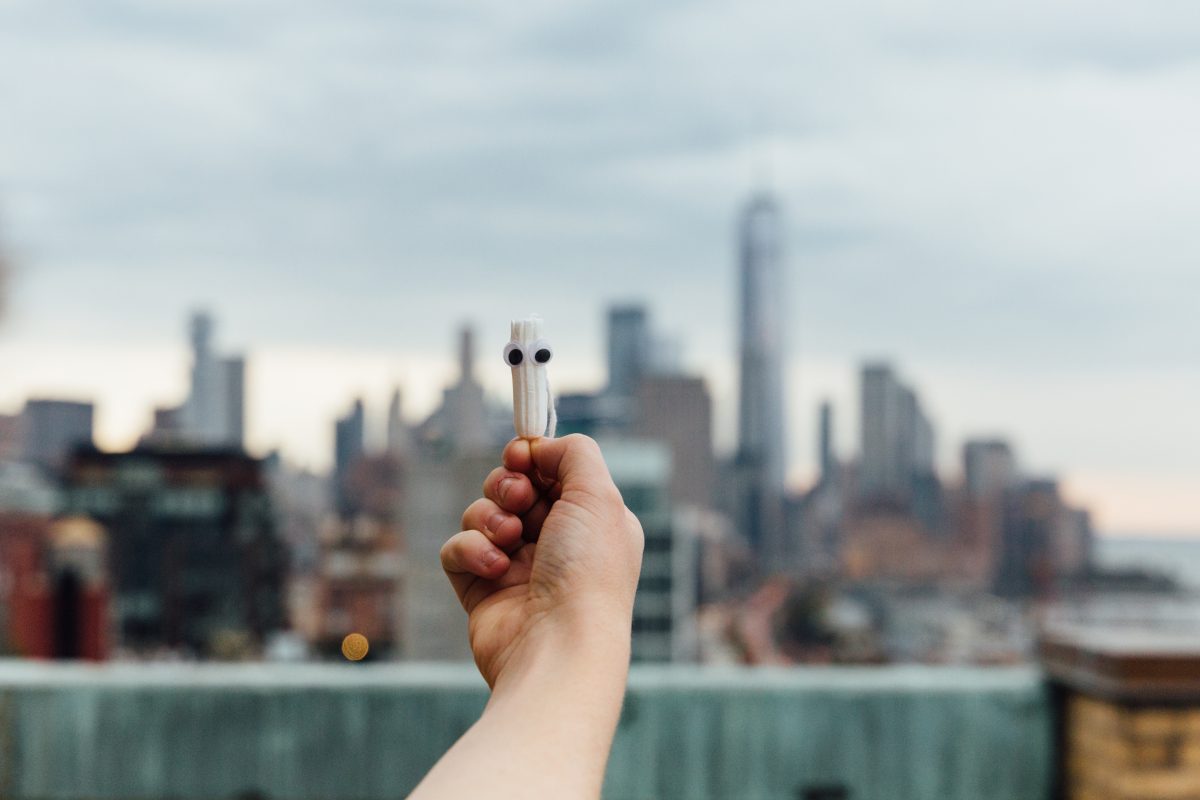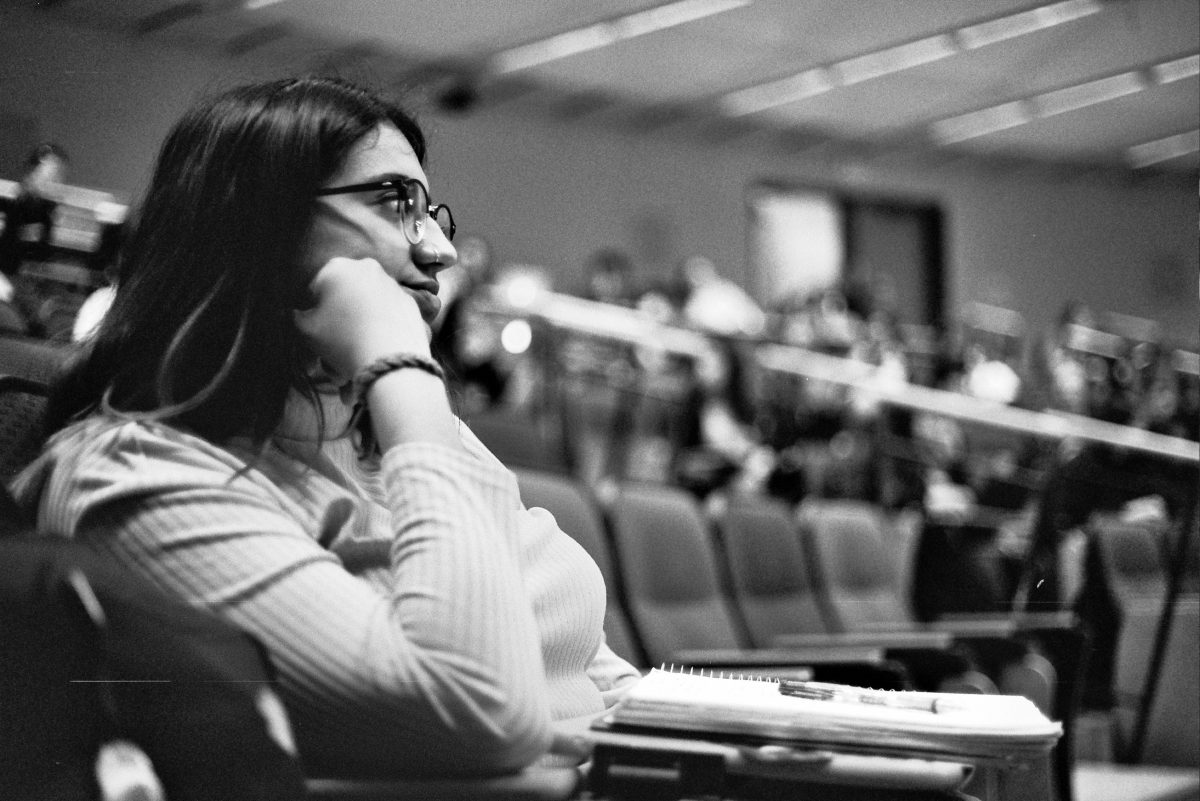“I think God chose me to suffer so that I would have enough passion for everyone else,” says 88 year-old Helen Boyd. She describes her life in a set of Ds—deaf, disabled, divorced and depressed. She’s also a woman looking for a new tenant.
“Why do you think I have a room on the classified pages?” asks Boyd. “I’m broke. I need money. I have less than $1,200 coming in per month, a mortgage and three part-time jobs.”
Boyd lives in the North Delta area of Eugene, Oregon in a trim, green two-bedroom house with a raised bed for gardening in the front. I found Boyd through her classified ad in the Sunday paper of The Register-Guard. She has a room going for $500 a month with a strict no drugs or alcohol policy. When the door rings, her pudgy dog Joey barks to signal that Boyd has visitors.
“Communication loss is a silent epidemic,” Boyd says. “It affects everyone.”
Boyd has dealt with hearing loss since childhood. She is currently on her second pair of cochlear implants, which help her communicate with others. According to the American Journal of Otology, there is only a 3 percent chance of failure after the first cochlear implant. She still persevered through another surgery because she wanted to work through a new implant, and she wrote about her recovery after surgery in support of the Cochlear Implant Association.
Despite her obstacles, in the 1970s Boyd was taking classes and working at Umpqua Community College. She was the first one in her family to graduate from high school. Boyd managed to complete 18 college credits with great difficulty as her hearing was going downhill, and then suffered from a fall that ruptured a disc in her spine. Today, she still goes to therapy for that injury. Boyd walks around the house with purpose, never wasting an extra step.
“I tried every possible way to get to class even after I was disabled,” Boyd says. Even with her back injuries, she dragged a heavy PA system around campus—her classmates and teachers used the sound system so that she could hear them.
“I wanted my education so badly, and the students in the class would pass around the microphone with cords so that I could hear the professor,” she says.
Boyd’s college had an office for accessibility services. She says that though the center assigned volunteer students to help her take notes in class, they either didn’t show up or offered her no help.
“I wanted my education so I could be employed,” Boyd says. This was also before 1990, when the Americans with Disabilities Act was passed. The ADA prohibited the discrimination of people with disabilities in all areas of public life.
With the burden of the back injury, Boyd tried to appeal to Umpqua Community College about her plight, but since they couldn’t physically see the injury, they told her to drive up to Portland to see specialists with her workman’s compensation money.
Boyd leans back on her floral rocking chair and recounts when she drove back from Portland after that appointment. Her car flipped in Albany, and her cat died during the crash. She also got divorced soon after.
“If nothing good happened to me, I probably would’ve killed myself,” she says.
In 1981, Boyd had the opportunity to go to Washington DC to advocate for folks with hearing loss. After that trip, she was so inspired that she helped to establish Lane County’s chapter of the Hearing Loss Association. HLA’s mission is to provide support and resources for people with hearing loss. and Boyd served on its original council. Her children have also played a key role in connecting community members together through newsletters and website updates. She wants more people to go to their meetings and volunteer with the organization.
When you reach Boyd’s voicemail, it says “please speak loudly and clearly, thank you.” This is a sharp contrast to the time when phones were not as common. Boyd used to have to drive to the courthouse and everywhere else to get information she needed. If she didn’t have her hearing aids on and the phone rang, she either had to notice her dogs’ barking cues or put her hand on the wall so that she could feel the phone vibrating.
“I can’t believe how many people believe that sign language is the solution,” Boyd says, “I didn’t want to be in the deaf community, I want to be in the hearing community. Sign language was just another burden that I couldn’t take on with everything else going on.”
Through her life, Boyd has made space for herself to be heard. She has written op-eds in the newspaper, spoke to a class at the University of Oregon and had fellowships with her church community about the issues she cares about.
Nowadays, Boyd lives with her cat, dog and renters. Owen Nelson, Boyd’s new tenant, wants to assist her in finding new ways to communicate.
“I’m going to help Helen be able to use the computer, so that she can write her stories about her life that she wants to tell,” Nelson says.








![[Photo Courtesy of the Lara Family]
Ruben embraces his beloved childhood goat, Katrina.](https://ethos.dailyemerald.com/wp-content/uploads/2025/05/katrina-1-1060x1200.jpg)


